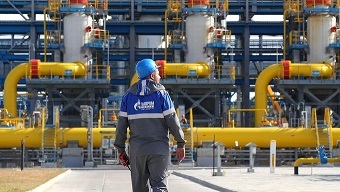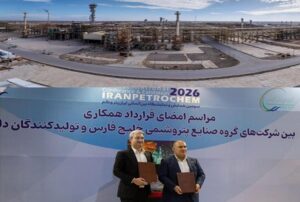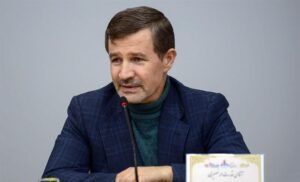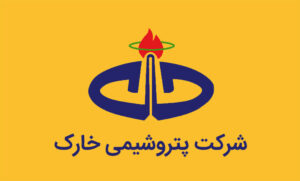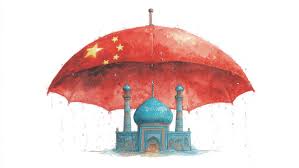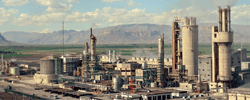“Rahbord Energy:”
The threat of a large-scale Russian invasion of Ukraine has put the United States and its European allies on high alert in part due to the potential for major disruptions to the European energy market, which remains highly dependent on Russian oil and gas. A Russian assault could trigger the cancellation of pending projects, including the Nord Stream 2 (NS2) pipeline to Germany, while Russian President Vladimir Putin has threatened to restrict energy exports.
In an effort to mitigate such a crisis, the White House is spearheading efforts to redirect energy supplies to Europe, but experts say any solution will come at a painfully high cost.
What is Russia’s energy situation?
Russia is an energy giant—the world’s third-largest producer of oil and second-largest producer of natural gas. By some estimates, fossil fuels account for 14 percent of the nation’s economic output. Revenue from the sector is responsible for more than 40 percent of the federal budget.
This conservative fiscal approach, as economic historian Adam Tooze points out, has allowed Putin to largely insulate his government from the effects of economic sanctions imposed after Russia’s 2014 annexation of Crimea.
Much of Russia’s energy output goes to satisfying European demand, especially natural gas sent over a network of Soviet-era pipelines crisscrossing Ukraine and other Eastern European countries. Moscow has sought to build new pipelines, including the controversial NS2, to bypass older networks. It has also approved a new gas pipeline to China, though its sales there would still be a fraction of its European sales.
How much does Europe rely on Russian energy?
There is a mutual dependence: The Kremlin depends on revenue from Europe, while Europe depends on Russian energy. But many analysts say Europe’s reliance means that imposing tougher sanctions on Russia risks putting a serious dent in its energy supplies.

A worker for the Russian state energy company Gazprom surveys a natural gas treatment facility at the starting point of the Nord Stream 2 pipeline in northwest Russia. Peter Kovalev/TASS/Getty Images
Overall, Russia supplies about one-third of European natural gas consumption, used for winter heating as well as electricity generation and industrial production. The European Union (EU) also turns to Russia for more than one-quarter of its crude oil imports, the bloc’s largest single energy source.
Some EU states are far more dependent than others. Portugal and Spain use little Russian energy, while Germany, the largest European economy, gets more than half of its natural gas and more than 30 percent of its crude oil supplies from Russia. France gets most of its electricity from nuclear power but still relies on Russian imports to meet its fossil fuel needs. Analysts say plans in Germany and other countries to phase out nuclear and coal power could increase this dependence.
How could Nord Stream 2 alter this relationship?
NS2 is an expansion of the original Nord Stream pipeline, which was completed in 2011 and carries natural gas from northwest Russia through the Baltic Sea directly to Germany. NS2 was approved by the German government in 2018 and construction was completed in September 2021. However, its launch has faced regulatory delays and renewed political scrutiny amid rising Western tensions with Russia.
Nord Stream 2
pipeline route
If approved, NS2 will allow more of Russia’s natural gas exports to Germany to bypass Ukraine and other current transit countries. This has been controversial from the start. Critics, including Washington, have warned it will give Moscow more sway over European countries and potentially widen political divisions over how to respond to Russian aggression. Eastern European countries such as Poland and Ukraine, meanwhile, worry that NS2 will deprive them of billions of dollars in annual transit fees and put them even more at the mercy of Russia.
For many observers, these dangers were amplified again in late 2021, as Russia held back from delivering additional gas supplies amid a spike in energy demand. The result was a tripling of prices and threats of shortages across Europe. For France, the episode confirmed its long-held advocacy for nuclear power.
What comes next?
U.S. and European leaders are particularly concerned about major supply disruptions in the case of a full-scale Russian invasion of Ukraine. The German government has said that it could cancel NS2 completely if that happens.
Such a move, however, would pose a major challenge: how to keep Europe supplied with fuel while also punishing Russia. U.S. President Joe Biden has promised to impose “severe costs” for a Russian invasion—including cutting Russian banks off from the global financial system. But if Putin responds with gas cutoffs, that could spike energy prices further, drive inflation, and undermine Europe’s economic recovery.
Efforts are underway to backstop European energy needs. Europe has about one month’s worth of “cushion gas,” or the minimum gas typically required to be kept in storage, which it could draw on in an emergency. In addition, there is the roughly nine weeks worth of demand usually held by commercial suppliers, and the White House is spearheading efforts to scrape together additional liquefied natural gas (LNG) supplies. A similar approach helped supply Japan in the aftermath of the Fukushima nuclear disaster.
But analysts say that most of the world’s supply is spoken for, and that even if such measures could relieve the short-term crunch, the costs will be high. Former CFR Senior Fellow and Tufts University energy expert Amy Myers Jaffe argues that in the event of a full Russian cutoff, it is likely that “Europe will find a way.” Jaffe says producers could redirect some LNG shipments or shift more of their energy mix to coal or other sources. However, she warns, “any shifting of supply would be at premium prices, leaving European consumers with an even steeper bill.”

